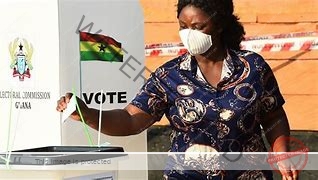I am getting the answer out of the way before my cherished readers get to the end of this op-ed piece. This is just in case there is an expectation
I am getting the answer out of the way before my cherished readers get to the end of this op-ed piece. This is just in case there is an expectation of a political endorsement but only get to the end and realise there is none.
Recently, I had a private conversation about the 2024 presidential and parliamentary elections with a very good friend. This my friend is one of the most partisan people you would ever meet and reminds me a lot of my dear mother.
Their parties can do no wrong. The conversation was one of those rare but truly cherished moments where a partisan stepped out of their political zone to discuss all the dimensions and intricacies of the upcoming presidential and parliamentary elections.
When the conversation ended, we agreed that trust would be extremely important in this election. We pictured voters asking, “which candidate am I willing to take my chances with because deep down my heart, they are the candidate I can trust to deliver on their campaign promises.”
Trust and the season of campaign promises
No candidate can campaign without making promises to the electorate. Voters must, therefore, be prepared to hear a lot over the next several months. These promises signal how candidates intend to address the many socio-economic challenges facing us with the hope of moving the country’s development needs forward.
After promises are made, voters have the burden of weighing them to decide who and which promises will get their vote. There is no right formula for making this decision although voters do weigh several factors such as a shared party or other social identity, capacity to deliver, fulfilment of prior promises, knowledge of the availability of resources to deliver on all promises, familiarity with the policy domain in which a particular promised is being made, similarity of past promises, the potential of one promise over another to address a particular public problem, prior performance, etc.
The decision points are endless but at some point, the voter must decide and choose among alternatives. There are no guaranteed outcomes for the choice you make if I may add.
Recall what I shared last week about voting and whether it makes a difference or not. I asserted that no voter knows with any certainty, what kind of difference, positive or negative, their vote is going to result in for the country and themselves.
However, I did add that voters cast their votes in anticipation of a positive difference at both the individual and collective national level. This is where my good friend and I agreed that in the absence of guaranteed outcomes but in anticipation of positive results from voting, trust becomes an important ingredient in the voters’ decision toolkit.
2024 presidential and parliamentary elections
But how do you ask voters to weigh trust as an additional factor, given how they are currently feeling? I say this because trust is at an all-time low. This is well captured by the Afrobarometer survey. And it is not just low levels of trust and the significant decline over time in the institutions that make democracy work.
It is also the low levels of trust we are expressing in other citizens, relatives, neighbours, religious leaders, etc. So, imagine being a presidential or parliamentary candidate making promises to voters whose trust fuel tank is running low. How do you get them to trust you and your promises in this upcoming election?
It gets even more complicated if the voters from whom a candidate is seeking votes have prior experience with them. The prior experience may colour – positively or negatively – whether and how well the candidate passes a voter’s trust test.
December 2024 will soon be here and voters will choose from among the options they have. The task facing our presidential and parliamentary candidates is not an easy one, but it is one that they must face and respond to as the election seasons roll on.
The more I – a) follow and observe public discourse; b) pay attention to the campaigns of the two main political parties and c) pour over data from previous pre-election surveys and polls, I am quite intrigued by the political terrain candidates must navigate strategically between now and December including presenting themselves as the candidate voters can better trust.
The next round of the Afrobarometer plus the various pre-election surveys and polls this year will provide an update on whether trust has improved or further deteriorated. It is my fervent hope that trust in one another and institutions will see some improvement. When all is said and done, I am looking forward to an exciting election.
The Writer is the Executive Director of Democracy Project, a political think tank

COMMENTS